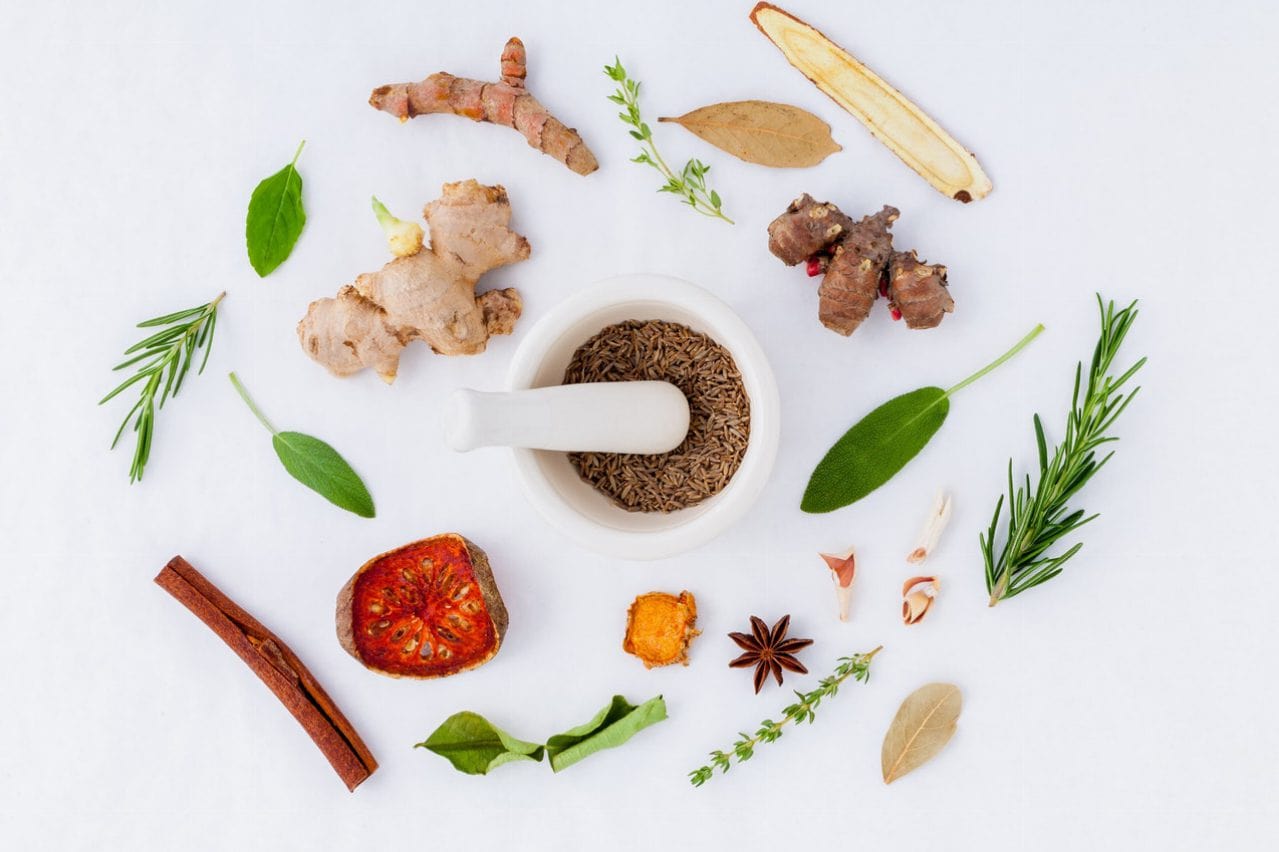There are so many wonderful things that the eastern diet has to offer. From colorful veggies packed full of vitamins and phytonutrients to fragrant spice blends with anti-inflammatory properties, you can add both flavor and health benefits to your meals.
Some of the wonderful spices in the eastern diet cabinet that are packed with health boosting benefits are ginger, turmeric, garlic, miso, cilantro, cinnamon, chilis, and sesame. (1)
Vegetables often used include onion, celery, eggplant, cabbage, mushrooms, daikon radish, various greens (mustard, spinach, mizuna), and root veggies (2). This colorful crew is full of vitamins, minerals, and phytonutrients (which possess powerful anti-inflammatory and antioxidant properties).(3)
- Omega-3 rich fish, ginger, cinnamon, turmeric, cayenne, peppercorns, clove, and green tea all have amazing anti-inflammatory properties.
- Garlic, ginger, onion, shiitake mushrooms, and turmeric are great for immunity boosting powers.
- Seafood listed with the above anti-inflammatory group also have cardiovascular health benefits.
- Miso, kimchee, and other fermented foods contain probiotics for immunity and gut health/digestion.
Try our Omega 3 supplement
Our omega-3 is sourced from the icy waters of Norway and tested for purity to ensure an odorless product without the fishy aftertaste.
Make sure to watch the sodium levels (soy sauce and miso are loaded), add spice carefully (unless you can handle the heat), and keep grains whole (opt for brown over white rice), while adopting Hara hachi bu (stopping when you are 80% full), and you will be set for new and exciting cuisine to explore.
All of the above will make this dietary style a wonderful addition to your week. So, add some of the listed items to any meal and feel the healing powers of food.
If you are looking for the highest quality Vitamin and Mineral Supplements personalized for you, please go to www.personanutrition.com and take our on-line questionnaire providing individualized vitamin and mineral recommendations. Persona is the only Science Based supplement provider on the web today! Take advantage of our knowledge and use it to your health’s benefit!


